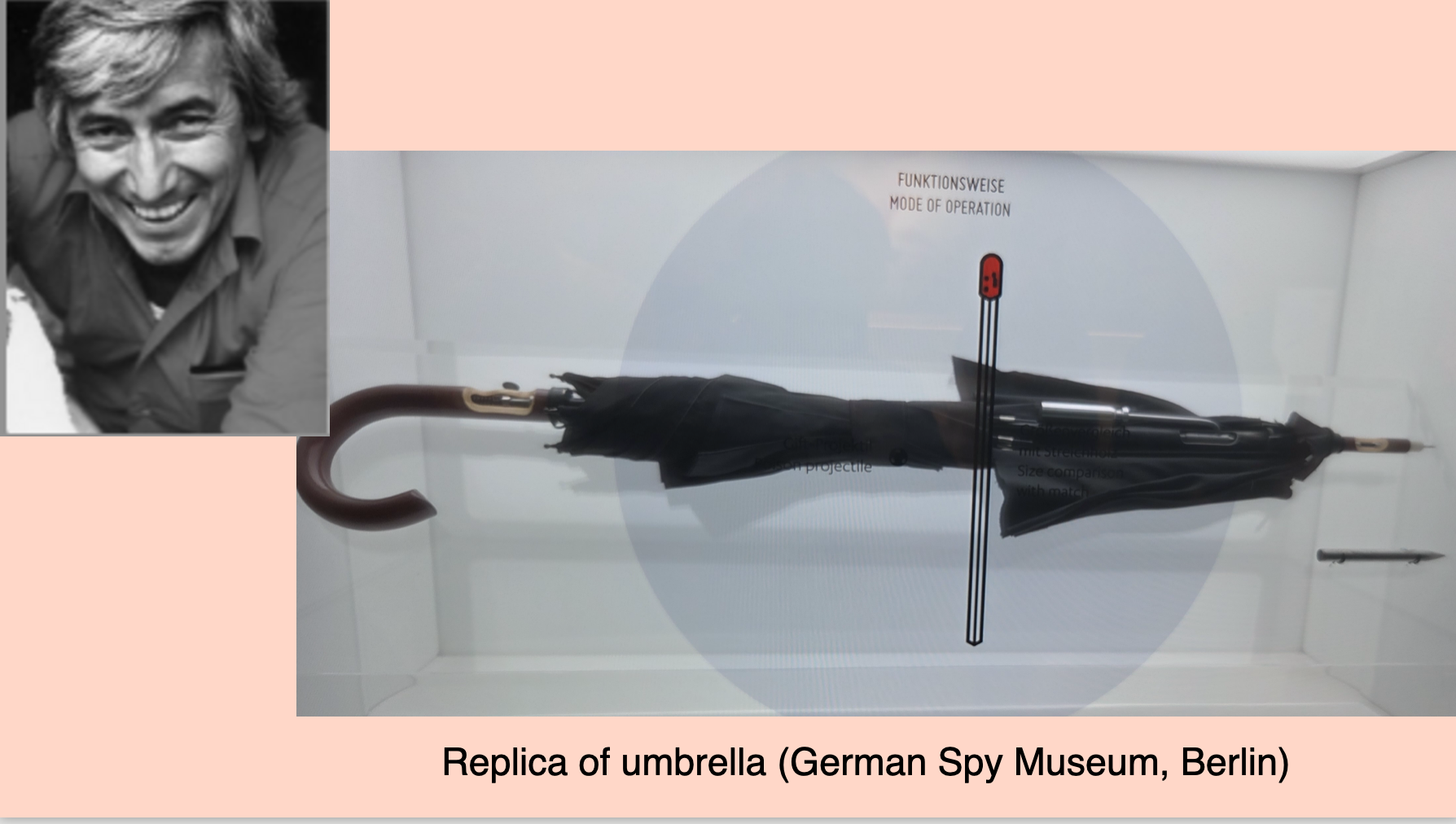ON THIS DAY: 11 September 1978 – Georgi Markov, a Bulgarian dissident writer and journalist, was assassinated in London in one of the Cold War’s most notorious acts of covert murder.
After defecting from communist Bulgaria in 1969, Markov became a powerful voice against the regime of leader Todor Zhivkov. He worked with the BBC World Service, Radio Free Europe and Deutsche Welle, gaining notoriety for his sharp and fearless critiques of the Bulgarian dictatorship.
On 7 September 1978 – Zhivkov’s birthday – Markov was waiting at a bus stop near Waterloo Bridge in London when he suddenly felt a sharp sting in the back of his thigh. He turned to see a man stooping to pick up an umbrella before walking briskly away. Within hours, Markov developed a raging fever and was admitted to hospital. Four days later, on 11 September 1978, he was dead. Investigators later discovered that the umbrella had been modified into a weapon. It fired a tiny metal pellet, less than two millimetres wide, into Markov’s leg. Inside the pellet was ricin, a deadly toxin extracted from castor beans. Ingeniously engineered, the pellet had microscopic holes sealed with a sugar-like coating, designed to dissolve at body temperature and slowly release the poison into his system.
Suspicion quickly fell on Bulgaria’s State Security (DS), widely believed to have ordered the hit, with technical assistance from the KGB, the Soviet Union’s intelligence service renowned for such operations.
The so-called ‘umbrella assassination’ became an enduring symbol of Cold War espionage and political repression. It demonstrated the extraordinary lengths Eastern Bloc secret services would go to in order to silence critics abroad. Officially, the case was never solved in court, but testimony from defectors and declassified documents later reinforced the belief that it was a joint Bulgarian-Soviet operation.

